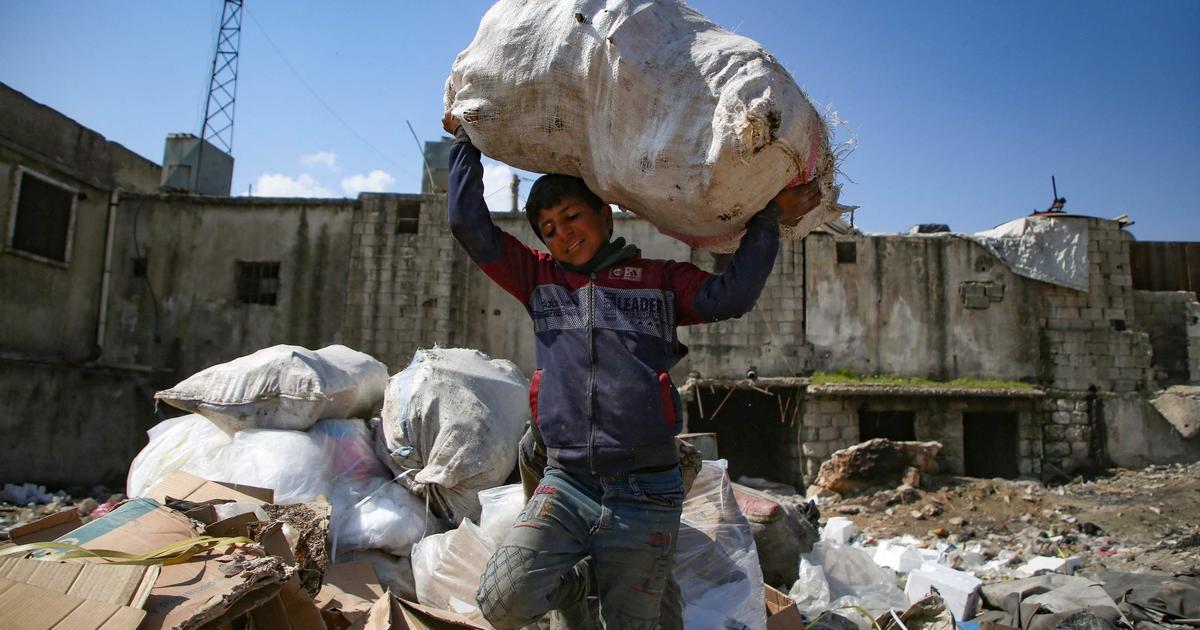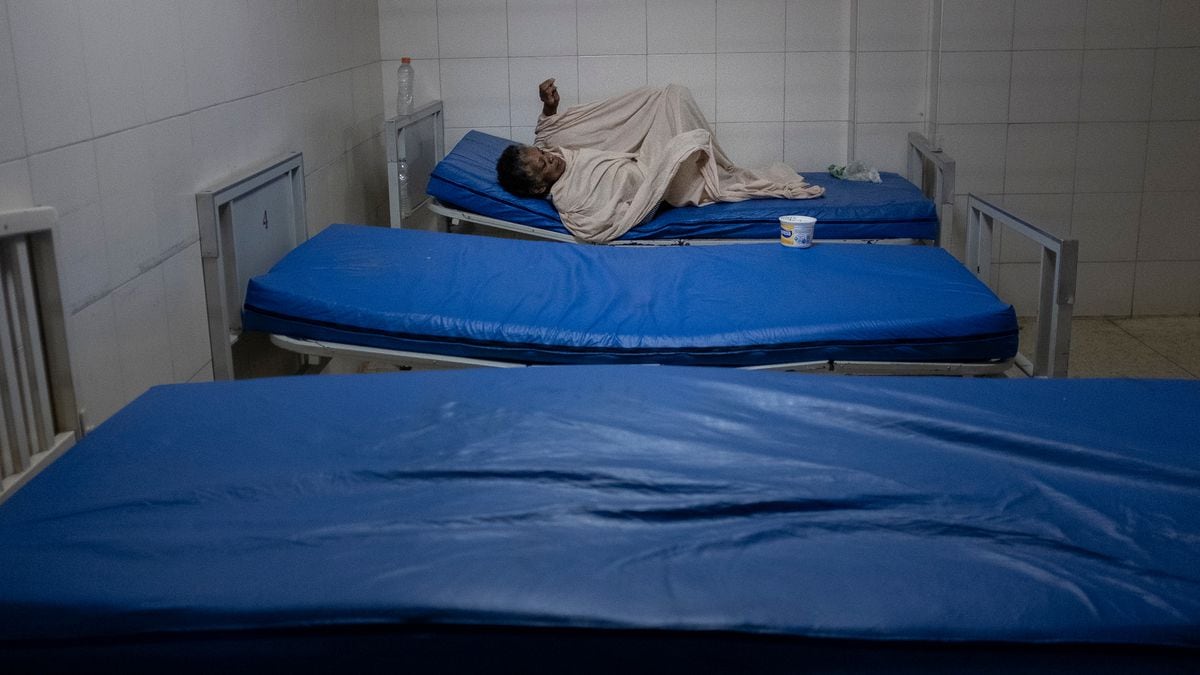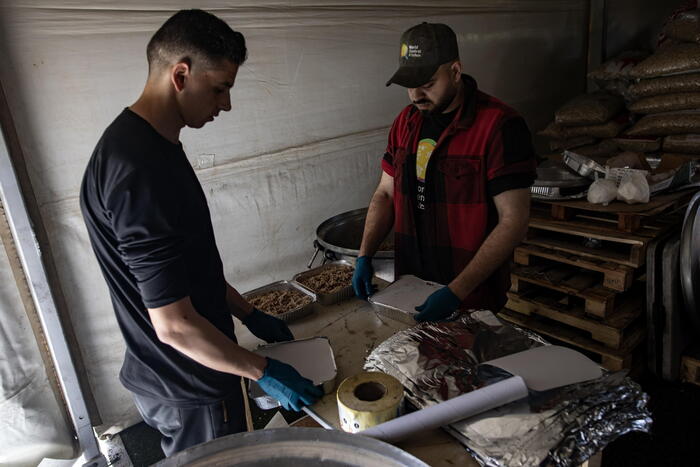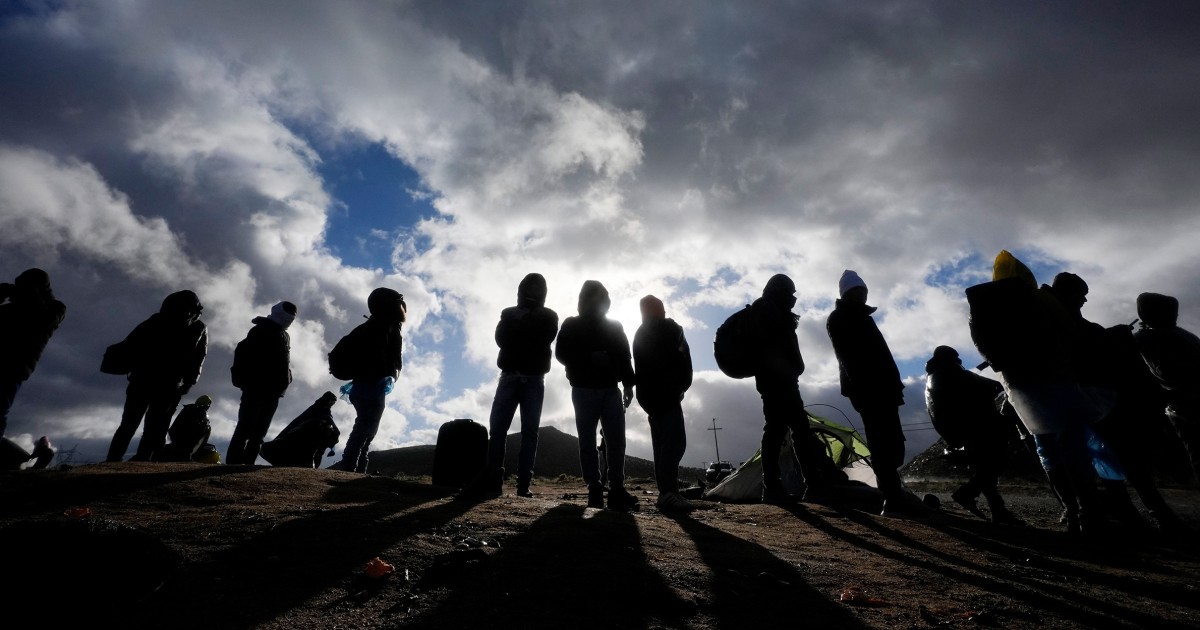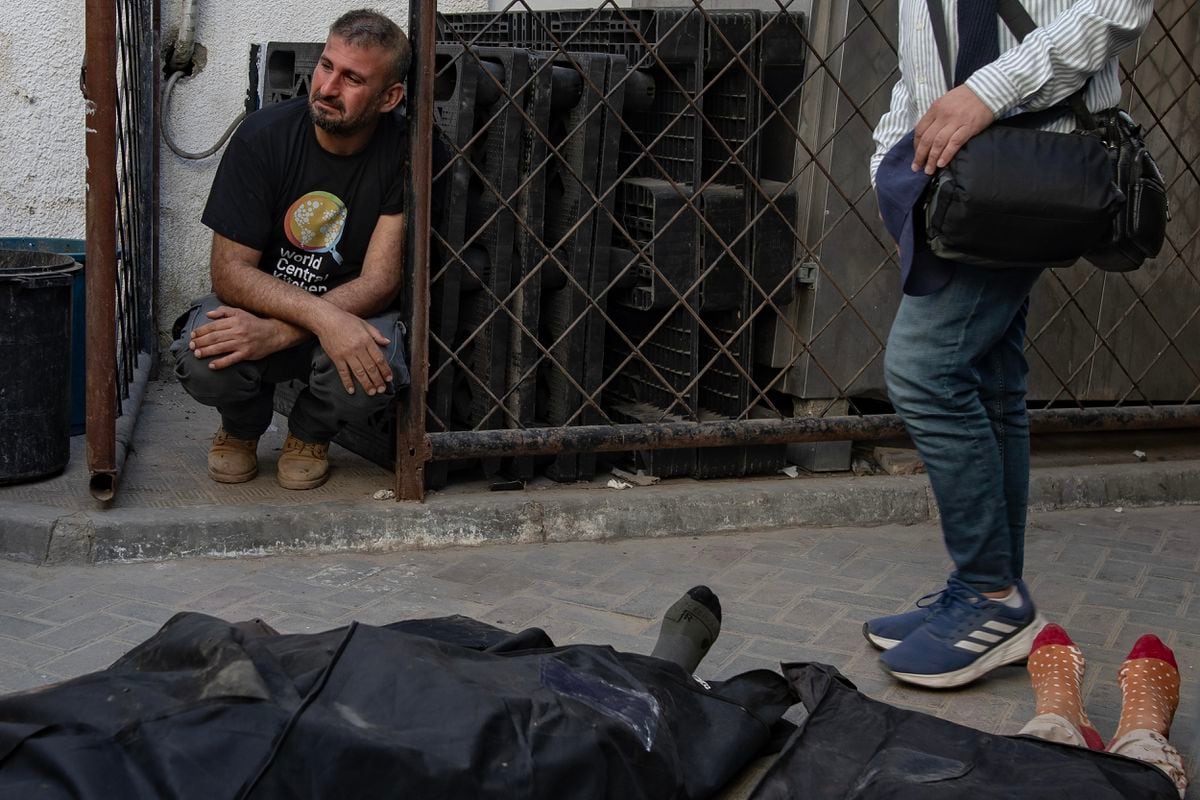Members of Doctors Without Borders help rescue migrants off the coast of Malta THOMAS LOHNES / AFP
The scale of the social and economic crisis generated by the pandemic has required an unprecedented mobilization of public and private resources. NGOs have also played an important role in this care network, especially when it comes to meeting the needs of the most vulnerable groups. It is now, however, the nonprofits that are in trouble. Taking into account the current vaccination rate, 70% of these organizations delay the recovery of their activity to pre-pandemic levels to 2022, according to a barometer carried out by Deloitte. In addition, while NGOs have increased the beneficiaries of their services, they see how donation income is falling in 2021 and hope to close the year in a "very deteriorated" economic situation.
Miguel Fernández, director of the Spanish Federation of Food Banks (Fesbal), notes how they have to cope with a flood of requests for help with dwindling resources: the number of beneficiaries of this entity has gone from one million in 2019 to more than million and a half in 2020. They are families whose members have lost their jobs, many of them single parents and with a far from clear horizon. "We run the risk of forgetting that, underneath an apparent normal life, there is still an urgent need to provide food to the most needy people in our society," warns Fernández. The fundraising director of Doctors Without Borders, David Monllau, also sounds the alarm: “The pandemic is disproportionately affecting the most vulnerable,including the more than 70 million forcibly displaced people in the world. The access of these people to vaccines against covid-19 is something that greatly concerns us ”.
More than 50% of the 189 NGOs that have participated in the Deloitte survey expect their income to decline this year. Societies that work in the fields of disability, environment and health consider that they will be the most affected by the economic crisis. The reduction of income is foreseen in the four main financing channels: individuals, companies, public funds and own funds. The situation is more serious if one takes into account that the piggy bank that many of these entities kept for contingencies is being consumed: 27% of those surveyed acknowledge that the margin available in their fund for extraordinary situations has been reduced and 10% insure which sold out already in 2020.
“For 10 years, we have supported cancer research alongside patients. It has been decisive that the partner, the donor, the employer, the researcher, the patient and our team have felt close to each other because this situation could leave us isolated and take away the strength to remain united ”, highlights Marta Cardona, from Cris Contra cancer. "It is essential to continue moving forward and for this in this time of pandemic it is necessary to question everything we have done so far in raising funds, to redefine objectives and strategies with an open attitude to change, to do things differently , training us in digital tools and fundamentally taking care of ourselves ”, adds Cardona.
The mobility restrictions imposed by the coronavirus have highlighted the manifest and profound digital divide in the education of children and adolescents with fewer resources.
Teresa Rodríguez is the director of the Balia Foundation and indicates that 35% of the families they work with did not have the necessary technological equipment to continue with remote training or an internet connection to follow the activities.
“The minors have needed, and continue to need, an important reinforcement to make up for lost time and to be able to continue the school year.
For this reason, it is essential to continue our educational work and more so when we understand education as an engine of social change ”.
Finite solidarity
The pandemic has also accelerated the digitization of companies, which has caused greater difficulties in hiring people with disabilities, one of the priority groups for NGOs in the Deloitte study. “It has been a year of overwhelming solidarity on the part of companies and individuals, but we are concerned that, when it seems that the end of the virus is approaching, they will forget us. Unfortunately, the most vulnerable people are those who have the hardest time recovering from these situations, so the organizations will have to make an effort to continue being their voice ”, says Blanca Valentín-Gamazo, director of Achalay Spain.
Most of the NGOs in the sample consider that the impact of European funds on the Spanish economy will be “slight” and only one in five believes that it will be substantial. "The problems that the crisis has raised or exacerbated are structural to our economic and social system and will require long-term responses and collaboration between the different actors," concludes Marta Marañón, director of institutional relations for Ayuda en Acción.

/cloudfront-eu-central-1.images.arcpublishing.com/prisa/F5YLK5LE2BELDG6TXMDMTEBMVA.jpg)
